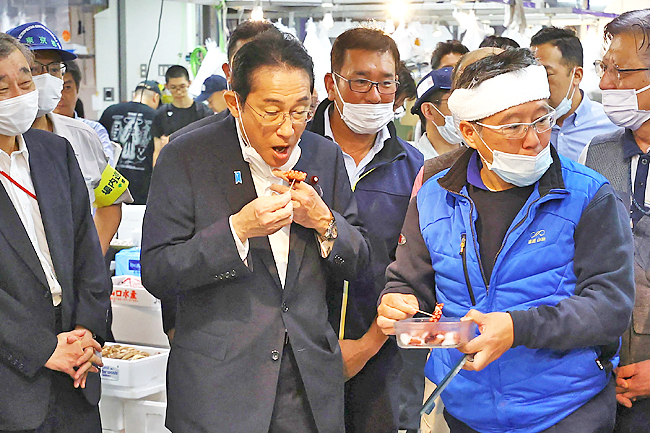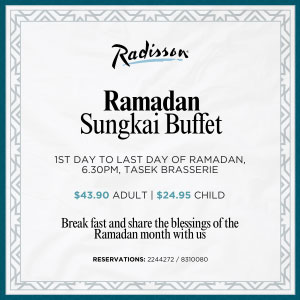TOKYO (AP) — Japan’s Prime Minister Fumio Kishida sampled seafood and talked to workers at Tokyo’s Toyosu fish market yesterday to assess the impact of the ban on Japanese seafood in reaction to the release of treated radioactive wastewater from the wrecked Fukushima Daiichi plant to the sea.
The release of the treated wastewater began last week and is expected to continue for decades.
One of the seafood business operators told Kishida that sales of his scallops, which are largely exported, have dropped 90 per cent since the treated water discharge.
“We will compile support measures that stand by the fisheries operators,” Kishida told reporters after the market visit.
China had stepped up testing on Japanese fisheries products, causing long delays at customs, even before the water release and its ban.

Japanese Fisheries Agency officials said the measure has affected prices and sales of seafood not from Fukushima but from as far away as Hokkaido.
Government officials have called for Japanese consumers to eat more scallops to help support hard-hit exporters, while finding new export destinations in Europe and the United States.
All seawater and fish sampling data since the release have been way below set safety limits for radioactivity, officials and the operator, Tokyo Electric Power Company Holdings say.
Chief Cabinet Secretary Hirokazu Matsuno on Wednesday hinted at an option of taking the case to the World Trade Organization (WTO).
He said Japan has raised past issues concerning trade restrictions without scientific basis, and that “Japan will consider various options while continuing to work within the WTO framework to decide necessary steps.”





